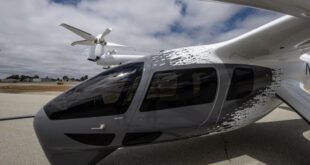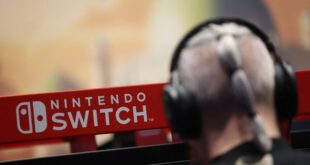TOKYO (Reuters) – A little-known private equity firm is set to take on the toughest job in corporate Japan: turning around Toshiba.
Japan Industrial Partners (JIP) is spearheading a $14 billion takeover that will see the troubled conglomerate delisted on Wednesday after 74 years on the Tokyo exchange.
While not a global player, JIP has quietly built up a track record by carving out businesses from big manufacturers, such as Sony’s laptop arm and Olympus’ camera unit. Led by a former banker with a Wharton MBA, it has a reputation for being hands-on with its acquisitions, and for thrift – its executives fly economy.
In Toshiba, JIP takes on a sprawling company far bigger and more complex than any it acquired before. The stakes are also higher: Toshiba employs some 106,000 people in businesses including batteries, chips, nuclear power and defence, making it critical to national security.
Whether JIP can pull off a turnaround remains an open question given the damage at Toshiba after a decade of scandal, the bankruptcy of U.S. unit Westinghouse, management upheaval and backlash from activist shareholders.
JIP, which declined to comment for this article, has said little of its plans which will see it retain current Toshiba CEO Taro Shimada. It is likely to re-list Toshiba shares within a few years, Nikkei Asia on Tuesday cited the conglomerate’s outgoing chairman as saying.
Some industry insiders see a split-up and sweeping sales – rather than an initial public offering (IPO) – as the most feasible way forward.
“An IPO would be difficult without a compelling growth story that involves global expansion,” said Damian Thong, head of Japan research at Macquarie Capital Securities.
In some past deals, JIP has worked with the likes of U.S. private equity firms KKR and Bain Capital. This time it will take the lead and will need to handle the two-dozen companies and banks investing alongside it, such as chipmaker Rohm, financial services firm Orix and utility Chubu Electric Power.
“They have a very nice track record of, not killing companies and enriching themselves in the process, but rather of creating value in these deals,” said Ulrike Schaede, a professor of Japanese business at the University of California, San Diego.
“Will they find a lot of value at Toshiba? That’s a separate question.”
Toshiba declined to comment.
Getting this far has already been a challenge. Talks with banks for financing took months to finalise, causing a delay in JIP’s bid. Sources have said the firm had to iron out disagreements with banks and investment partners over post-buyout restructuring plans.
The equity portion of the deal also took time to be finalised, with several bankers blaming what they said was JIP’s difficulty in handling discussions within the consortium.
LOW PROFILE
Founded in 2002 with investment from Mizuho Financial Group and Bain & Co among others, JIP later became independent. CEO Hidemi Moue previously worked at a Mizuho predecessor, the Industrial Bank of Japan.
The firm seldom gives interviews. It sees its role as helping to revive Japanese companies without drawing attention to itself, said multiple people familiar with it.
“Normally I am someone who works quietly in the background, so I’m not used to speaking at these things,” Moue said in a presentation at a 2017 conference in Tokyo, a video of which is available online.
JIP works closely with management to turn the businesses it carves out into independent companies, a process that can take a decade in some cases, he told the conference.
It is also careful not be seen as a “hagetaka”, or vulture, said people familiar with the firm. A 2004 novel and a later television series of that title popularised the image of a rapacious foreign fund.
Instead, JIP is strict on costs, including its own, to avoid driving up fees and burdening the company it is working to turn around, the people said.
Top executives fly economy when going abroad, two of the people said. One former JIP employee recalled that when having dinner with management from investee companies, the fund would pay from its own pocket.
And unlike some buyout firms, JIP does not employ outside consultants to handle restructuring work, due diligence or investment research, preferring to do it in house, according to the former employee and another person with knowledge of the matter.
RECORD SALES
JIP has invested more than 600 billion yen ($4.2 billion) over 30 deals. It is not clear how much of its own money it is investing in the Toshiba deal.
After acquiring Sony’s Vaio laptop business in 2014, JIP focused on corporate customers – including Mitsubishi Corp and Mizuho Securities – who now make up 80% of sales. Large-scale orders helped Vaio achieve record sales of 35.8 billion yen in the year ended May, a spokesperson said, while declining to comment on JIP.
Vaio’s two most recent CEOs have come directly from JIP.
Shares of aviation equipment maker Nippon Avionics jumped more than sevenfold since JIP carved out the listed NEC subsidiary in 2020. It changed the company’s leadership, revised executive pay to introduce stock-based compensation and started buying back shares.
Success with Toshiba depends on whether new management can exit low-margin businesses and figure out how to make money from its advanced technology, said UC San Diego’s Schaede.
“That’s probably the big question: Will they have the vision and the assets to do that?”
($1 = 142.1500 yen)
(Reporting by Anton Bridge, Makiko Yamazaki, Miho Uranaka and Maki Shiraki; Editing by David Dolan and Christopher Cushing)
 BeritaKini.biz Berita Viral Terkini di Malaysia
BeritaKini.biz Berita Viral Terkini di Malaysia





